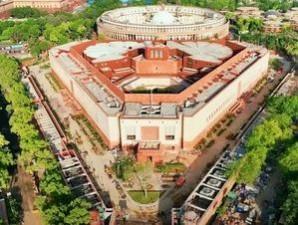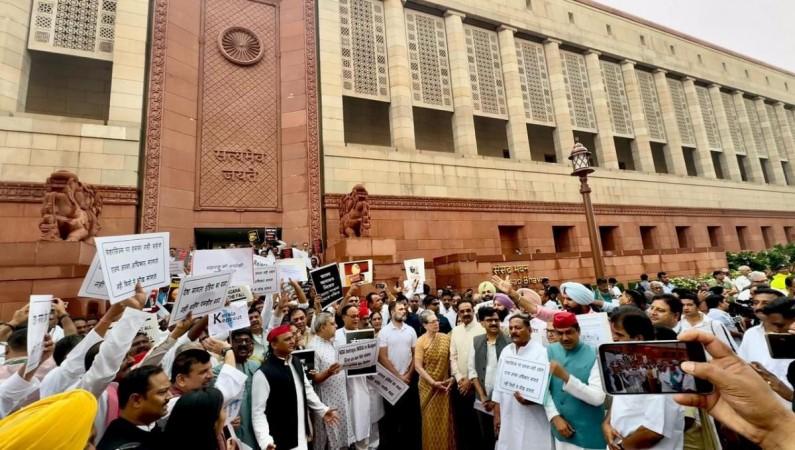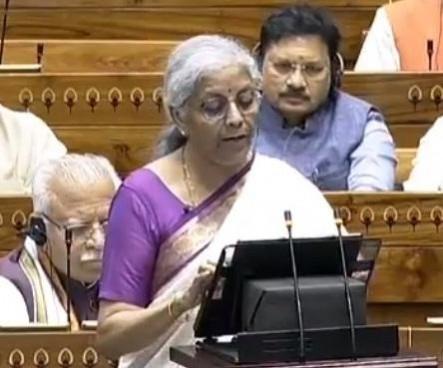
The recent Parliament session was dominated by discussions on the Union Budget and the Jammu and Kashmir Budget. These budgets, presented by Finance Minister Nirmala Sitharaman on July 23, 2024, outline the government's revenue and expenditure plans for the upcoming fiscal year. The budget for the Union Territory of Jammu and Kashmiris particularly significant, considering the developmental needs of the region. The discussions on these budgets were crucial as they shape the financial direction of the country and the Union Territory, respectively.
However, the session was not without controversy. The Opposition staged walkouts in both the Lok Sabha and the Rajya Sabha, raising slogans against the government. They alleged bias against opposition-ruled states in the Union Budget. Congress MP Manish Tewari criticized the new criminal laws, linking them to potential threats to civil liberties. He highlighted unemployment as a significant challenge and pointed towards the data released by the Centre for Monitoring Indian Economy (CMIE), which indicates that the unemployment rate for June 2024 is 9.2 per cent.
In response to the Opposition's allegations, the government, through Finance Minister Nirmala Sitharaman and Home Minister Amit Shah, defended the Budget and the new criminal laws. Sitharaman emphasized that the Budget was victim-centric and aimed at progress, countering the Opposition's claims of bias. Shah argued that the new criminal laws were drafted after comprehensive consultations and were necessary for ensuring justice, particularly for women and children.

The Parliament session also saw the election of the Speaker and Deputy Speaker. There were discussions around the election of the Speaker, with appeals for a non-contested election to uphold the dignity of the post. The Motion of Thanks for the President's address was presented and passed, with the government seeking support from the Opposition. Elections for various parliamentary committees were held, indicating the functioning of parliamentary democracy.
There were protests and demands for discussions on alleged irregularities in the National Eligibility cum Entrance Test (NEET), with concerns raised over its impact on students. The motion for electing members to the Rajghat Samadhi Committee and other advisory committees was moved. The Opposition, led by Rahul Gandhi and Mallikarjun Kharge, protested against the government's policies, including the alleged unfairness of the Budget and the handling of the NEET exam.
The Mines and Minerals (Development and Regulation) Amendment Bill and other bills were passed, allowing private sector participation in mining of certain minerals. S Phangnon Konyak became the first woman from Nagaland to preside over Rajya Sabha, marking a step towards gender equality in parliamentary leadership. The government highlighted the increase in medical colleges and seats, showcasing efforts to address the shortage of doctors in the country.

The outcome of the discussions and debates on the Union Budget and the J&K Budget in Parliament included their continuation amidst opposition protests. The Budgets were debated, with the government defending its proposals and the Opposition raising concerns and criticisms. However, specific details on the final voting or acceptance of the budgets are not provided in the given context. Typically, after debates, the Budget is put to a vote, and if passed, it becomes law. The exact vote counts and any amendments made during the process are not detailed in the summaries provided.
The Parliament session was marked by intense debates, protests, and significant legislative actions. The discussions on the Union Budget and the J&K Budget, the protests by the Opposition, and the government's responses reflect the dynamic nature of parliamentary proceedings in India. Despite the controversies and disagreements, the session saw the passage of important bills and discussions on key issues, highlighting the functioning of parliamentary democracy in the country.

















